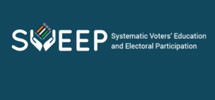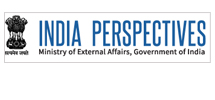RIGHT TO INFORMATION
The Right to Information under the provisions of the RTI Act is available to the citizens of India only. RTI Act is an important legislation designed to promote transparency and accountability in the functioning of public authorities.
The full text of the RTI Act is available on the website
RTI-Act.pdf.The RTI Act also provides for appeals by aggrieved persons to the Central Information Commission of the Government of India.
Indian citizens resident in Papua New Guinea and Solomon Islands may seek information in writing on payment of requisite fee during office hours on working days as per procedure laid down in the RTI Act, 2005.
Contact details of officers for addressing applications under Right to Information Act, 2005 is as under
Chief Public Information Officer
Shri Monotosh Sajjan , Attache (Admn)
First Appellate Authority
Shri Inbasekar S, High Commissioner
Applications seeking information under the Act may be sent along with a fee in local currency equivalent to INR 10/- (Indian Rupee ten only) in cheque or demand draft to High Commission of India.
It may be noted that information provided under the Act is available to citizens of India only. Applications should be submitted along with documentary proof of Indian Citizenship (like copy of personal particulars pages of passport). More information is available at
http://rti.gov.in. The mailing information is available at the website of the High Commission at https://www.hcipom.gov.in/index.php .
It may also be pointed out that as per section 6(1) (a) of the RTI Act, 2005, a person who desires to obtain information under the Act is required to submit the application to the Information Officer of the “concerned public authority”. Applicants are, therefore, advised to send their requests under the RTI Act to the Embassy only when the subject matter can reasonably be presumed to pertain to the Embassy. While section 6 (3) provides for the transfer of an application by a receiving PIO to another [concerned] PIO, this is clearly meant to cover situations where the application is addressed to a PIO on the assumption that it has been directed to the concerned PIO. Where the information required obviously does not pertain to the Embassy, the application may be addressed to the concerned PIO directly.
Payment of RTI fee online - Electronic Indian Postal Order (eIPO)
The scheme of Electronic Indian Postal Order (eIPO) has been launched by the Department of Posts, Ministry of Communications and Information Technology, in association with Department of Personnel and Training (DoPT). This would enable the Indian citizens abroad to pay the RTI fee online.
An Indian Postal Order can be purchased electronically by paying a fee on-line through e-Post Office Portal or through India Post website. The web-links for payment are:
The Credit Card or Debit Card of any bank powered by Visa/ Master can be used for this purpose.
Procedure
The RTI applicant is required to register on the website to create his/ her profile. Then he has to select the Ministry/ Department from whom he desires to seek information under the RTI Act. The eIPO is generated which can be used to seek information from that Ministry/ Department only. A printout of the eIPO is required to be attached with the RTI application sent in hard copy. In case RTI application is filed electronically, the eIPO is enclosed as an attachment. The profile is required to be created during the first time only.
The RTI application accompanied by an eIPO is similar in all respects to the RTI application accompanied by fees through any other approved mode. All the provisions regarding eligibility, time limit, exemptions etc; as provided in the RTI Act, 2005 continue to apply.
Currently, this facility is available only for Indian Citizens living anywhere other than in India. By this measure, those living abroad would be facilitated to seek information under the RTI Act, 2005. It is hoped that in future, this facility would be extended to all citizens within the country too. Any public authority which accepts a postal order should also accept an eIPO.
Extension of IPO Facility to Indians citizens residing in India
The Department of Posts has extended the “eIPO” (electronic Indian Postal Order) service to Indian citizens residing in India also w.e.f. 13.02.2014, for purchasing Indian Postal Order electronically by paying a fee online through e-Post Office Portal i.e
www.epostoffice.gov.in. It can also be accessed through India Post website
www.indiapost.gov.inThis facility has been provided for Indian citizens to facilitate them to seek information from the Central Public information Officers (CPIOs) under the RTI Act, 2005. Debit or Credit Cards of any Bank powered by Visa/ Master can be used to purchase e-IPO.
The user needs to get registered at the website. He has to select the Ministry/ Department from whom he desires to seek the information under the RTI Act and the eIPO so generated can be used to seek the information from that Ministry/Department only. A printout of the eIPO is required to be attached with the RTI application. If the RTI application is being filed electronically, eIPO is required to be attached as an attachment.
This facility is only for purchasing an Indian Postal Order electronically. All the requirements for filling an RTI application as well as other provisions regarding eligibility, time limit, exemptions etc. will continue to apply.
An eIPO so generated must be used only once with an RTI application.
INFORMATION ABOUT THE HIGH COMMISSION OF INDIA,
REQUIRED UNDER SECTION 4(1)(B) OF THE RTI ACT, 2005
(i) |
The particulars of its organization, functions and duties;
|
High Commission of India is headed by the High Commissioner and has Political, Consular & Commercial, ITEC and Administration & Information Sections.
The functions of the High Commission inter alia, include a strong and multifaceted bilateral relationship with Papua New Guinea comprising political, economic, commercial, consular, cultural, scientific and other elements. High Commission functions within the purview of business allocated to the Ministry of External Affairs under the Government of India's Allocation of Business Rules and Transaction of Business Rules. In addition, the Mission also provides similar coverage to Solomon Islands
|
|
(ii)
|
The powers and duties of its officers and employees;
|
General Administrative powers are derived from IFS (PLCA) Rules, as amended from time to time.
Financial powers of the Officers of the High Commission of India have been detailed in the Delegated Financial powers of the Government of India's Representatives Abroad.
Other powers are derived from the Passport Act of India. The Officers of the High Commission function under the guidance and supervision of the High Commissioner.
|
|
(iii)
|
The procedure followed in the decision making process, including channels of supervision and accountability;
|
Decisions are taken under the instruction and supervision of the High Commissioner.
|
|
(iv)
|
The norms set by it for the discharge of its functions
|
Norms are set under the instruction and supervision of the High Commissioner.
|
|
(v)
|
The rules, regulations, instructions, manuals and records, held by it or under its control or used by its employees for discharging its functions;
|
IFS PLCA rules and annexures
Delegated Financial Powers of Government of India's Representatives Abroad Rules
Passport Act
Manuals on Office Procedures
Other Central Government Rules and manuals published by Central Government.
|
|
(vi)
|
A statement of the categories of documents that are held by it or under its control;
|
Classified documents/files relating to India's external relations
Unclassified documents/files including joint statements, declarations, agreements and MoUs. Passport and consular services application forms etc.
|
|
(vii)
|
The particulars of any arrangement that exists for consultation with, or representation by, the members of the public in relation to the formulation of its policy or implementation thereof;
|
High Commission of India functions within the norms of India's foreign policy formulated by the Ministry of External Affairs. Policy is implemented by the High Commission under the guidance and supervision of the High Commissioner
|
|
(viii)
|
A statement of the boards, councils, committees and other bodies consisting of two or more persons constituted as its part or for the purpose of its advice, and as to whether meetings of those boards, councils, committees and other bodies are open to the public, or the minutes of such meetings are accessible for public;
|
High Commission interacts regularly with representatives of think tanks, academic community and others.
|
|
(ix)
|
A directory of its officers and employees;
|
Please see Table 1 below
|
|
(x)
|
The monthly remuneration received by each of its officers and employees, including the system of compensation as provided in its regulations;
|
Please see Table 2 below
|
|
(xi)
|
The budget allocated to each of its agency, indicating the particulars of all plans, proposed expenditures and reports on disbursements made;
|
Please see Table 3 below
|
|
(xii)
|
The manner of execution of subsidy programmes, including the amounts allocated and the details of beneficiaries of such programmes;
|
High Commission of India does not have any subsidy programme.
|
|
(xiii)
|
Particulars of recipients of concessions, permits or authorizations granted by it;
|
No concessions/permits are granted by the High Commission of India.
|
|
(xiv)
|
Details in respect of the information, available to or held by it, reduced in an electronic form;
|
The High Commission’s website has the required information.
|
|
(xv)
|
The particulars of facilities available to citizens for obtaining information, including the working hours of a library or reading room, if maintained for public use.
|
Reception of the Chancery
From 09:00 to 17:30 hrs
|
|
(xvi)
|
Chief Public Information Officer
Shri Ashok Kumar
SS Head of Chancery
High Commission of India
Section 7 Loy 30 Lawes Road, Granville, NCD, Port Moresby.
Tel: (675) 3214293
Fax (675) 3214397
Email: hoc[dot]pmoresby[at]mea[dot]gov[dot]in
|
Appellate Authority
Mr. Inbasekar S,
High Commissioner |
|
|
High Commission of India
Section 7 Lot 30 Lawes Road, Granville, NCD, Port Moresby
|
|
T:
|
+675 32100216
|
|
f:
|
+675 321 4397
|
|
Email:
|
hc[dot]pmoresby[at]mea[dot]gov[dot]in
|
|
|
|
|
|
|
(xvii)
|
such other information as may be prescribed and thereafter update these publications every year;
|
The High Commission’s website has information which is updated on a regular basis.
|
Table 1
List of Officers
Name & Designation |
Phone No. (Office)
|
Phone No.
|
|
Shri S. Inbasekar
High Commissioner
|
321 0216 (D)
|
|
|
Shri Ashok Kumar,
Second Secretary (HOC)
|
3210369 (D)
|
+675-7826 4631
|
|
Shri S.L. Verma
Second Secretary (Cons)
|
3214291/ 3210528
|
+675-7826 4633
|
|
Akshay Kumar
|
3210216
|
+675-7640 2444
|
|
Vacant
Attaché(Accts/Admn)
|
321 4291/ 321 0528
|
|
|
Shri Naveen Kumar
IBSA
|
321 4291/ 321 0528
|
+675-7598 1817
|
Table 2
Monthly Remuneration of Employee of High Commission of India, Port Moresby
|
Sl No.
|
Designation
|
Pay Scale
|
Pay Matrix Level
|
|
1
|
High Commissioner
|
Rs. 144,200/- to 218,200/-
|
14
|
|
2
|
Second Secretary/PPS
|
Rs.67,700 to 2,08,700
|
11
|
|
3
|
Attache/PS
|
Rs. 56,100 to 1,77,500
|
10
|
|
Rs. 53,100 to 1,67,800
|
9
|
|
Rs. 47,600 to 1,51,100
|
8
|
|
4
|
ASO/PA
|
Rs. 44,900 to 1,42,400
|
7
|
|
5
|
IBSA
|
Rs. 25,500 to 81,100
|
4
|
Note: Apart from Basic Pay, India-based members are paid Foreign Allowance which is fixed by the Ministry of External Affairs, New Delhi from time to tim
Table 3
Head-wise BE allocations in respect of your Mission/Post for the year 2022-23:
|
HEAD
|
AMOUNT (Rs. IN THOUSANDS)
|
|
Salaries
|
38400
|
|
Wages
|
350
|
|
Overtime Allowance
|
250
|
|
Medical Treatment
|
3300
|
|
Travel Expenses(Local)
|
2800
|
|
Travel Expenses(Others)
|
5227
|
|
Publicity
|
1776
|
|
Office Expenses(OE)
|
16448
|
|
Swachhata Action Plan [SAP(OE)]
|
250
|
|
Information Technology
|
3500
|
|
Rents, Rates & Taxes
|
10044
|
|
Minor Works
|
3545
|
|
Other Charges
|
0
|
|
Total
|
85890
|




















